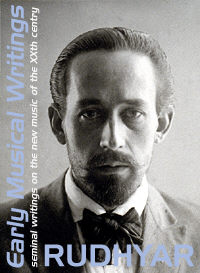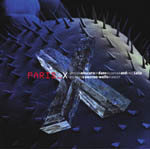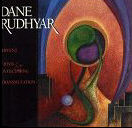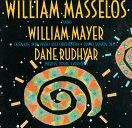 |
| Home | Bio | Art | Music | Literature | Civilization & Culture | Philosophy of Wholeness | Theosophy & Spirituality | Astrology |

TOWARD A DEEPER MUSICALITY
D. Rudhyar Eolian Review June 1925 The Early Musical Writings of Dane Rudhyar are made available for students of musical history and for scholarly research. Rudhyar was concerned that composers, students and scholars should not regard his earliest writings and articles - written while he was still a young man - as his most significant literary contributions to music. The reader is referred to Rudhyar's book The Magic of Tone and the articles The Transforming Power of Tone and When Does Sound Become Music for his mature and fully developed contributions. |
|
Related Articles |
|
Archived Music Articles |
|
|
Also Available Online |
|
» Rudhyar's Integration of Experience and Concepts - Music, from Leyla Raël's The Essential Rudhyar. |
|
Available Offsite |
|
Musical Works |
|
Musical Scores |
|
For scores of Rudhyar's musical works, visit the site of the American Composers Alliance. Musical scores 5 Stanzas and Granites are also available from SheetMusicPlus.com |
|
Also of Interest |

The Music of Rudhyar & Satie PARIS-X Musica Obscura Richard Cameron-Wolfe, Piano. Hear a sound clip 
Piano and String Compositions AVENT, CRISIS & OVERCOMING, TRANSMUTATIONS Marcia Mikulak, Piano and The Kronos Quartet 
An Earlier Recording of Rudhyar's Music Now on CD MASSELOS PLAYS RUDHYAR |
|
Home » Music » Articles on Music  The characteristic phenomenon in the world of art during the last thirty years is the apparition of countless schools, designations, "isms", and all the like. Out of the multiplicity of the tendencies thus displayed one fact stands out, which gives the key to the understanding of the whole period. This fact is: the continual search for new techniques. Impressionism, cubism, futurism, neo-classicism, all those names represent in the main nothing but various techniques. The forms through which the artists of the last generations have expressed themselves have evolved. Artists have been attempting ceaselessly to invent new combinations of sounds, of colors, new rhythms, new instruments, and either they believed that such forms constituted the entirety of Art, or else they hoped that some soul might descend into the forms so as to give them vital meaning. Now techniques will always differ. Each creator worthy of the name invents his own technique; followers only accept the techniques of others. If we speak of techniques then we shall never be able to group real artists into a whole, we will never understand a culture means. Scriabin and Stravinsky cannot be likened one to the other, if their techniques be considered. Yet they are but two faces of a great cultural entity which is slowly coming into being, two aspects of a new musicality, the basis of which we can already dimly perceive. In our materialistic age the outer garment of things is what attracts our attention. Speaking of Music, we think of chords, dissonance, orchestration, and so on, of the general impression it makes upon our ears, but never, as a rule, of how it affects, moves, quickens our soul. So how could we find it in Art, in Music? Yet to speak of techniques, of combinations of notes, of successions of chords will not help us at all in understanding the music of today as the prelude of the greater music of tomorrow. These things are all but circumferential appearance which change and have little value in themselves. The center remains. The musicality remains for an entire period. It has not to do primarily with forms, but with the soul that expresses itself through these forms, the collective life that, manifests itself as a culture. What is romanticism? Not a technique, not primarily a way of expression. It is a type of culture, a type of humanity expressed through art and life, for true Art and life can never be dissociated. Romanticism is essentially the "vital attitude" of two or three generations; in fact the fundamental essence of the art of the Nineteenth century, from Beethoven or Berlioz to Debussy, Intellectualism was the "vital attitude" characterizing the Philosophers' century, the Eighteenth. Every century has its own style, its own culture. Such a culture evolves all throughout the century; yet the keynote remains the same. Music, as a techniques changed from Berlioz to Parsifal; yet the romantic musicality Is a definite essence that can be recognized in Chopin and Wagner alike. The same is true of poetry, painting, and of all the arts. There have been many composers who lived in the early part of the Nineteenth century and who did not express this romantic musicality. Throughout the century Artists have lived who were devoted much more to the past, to the classical ideal, than to the present. Most of them are now unknown, yet they had their triumphs. What was true then, is true today. A new culture is evolving today. A characteristic vital attitude is manifesting in all realms of life, art, science and philosophy. In other words, the collective soul of the Twentieth century is being formed or revealed, and slowly its voice is being heard in all truly progressive and vital artistic expressions. The new culture, I believe, will spring out of the union of the European seeds and of the American soil, and its home will be America, as Europe is now dying, rent by hatred, war and jealousies. But only those seeds will fructify which embody the new ideal, the now vital attitude of the century. To write dissonances does not make one belong to the new culture. To be alive today does not make of one a channel through which the collective soul of the century may express itself. And that is what we are prone to forget. We speak of contemporary music. There is no such thing. All composers who happen to live today write music which as a matter of course is contemporary. But this hardly means anything. A musical work either expresses the new ideal or it does not. It belongs to the new culture of the twentieth century or to the old one — or to none at all if it is but an individualistic and superficial production. It is evident that the new cultural soul cannot express itself through worn out forms or tonal combinations. There is an intrinsic relation between soul and body. But it is the soul, or ideal, which should create the technique, or body, and not the reverse. And because it has been too often the reverse until now, because of this we have hardly heard as yet any great musical work sounding fully the new, innermost tone of our century. The twentieth century has not yet had its "Tristan and Ysolde". It has only had its Berlioz and Chopin in the person of Stravinsky and Scriabin. All this mean that we should be most careful when speaking of modern music, and know exactly what we mean by it. If we speak of this music which truly begins to express the new type of culture, we should better use the word "progressive". Progressive music is music which truly leads us forward into the future, because it is dynamized by Life and quickened by a fiery soul, this music which opens the way to a deeper richer, more cosmic, more essential, more spiritual musicality. The Eighteenth century expressed intellectualism in Music. The Nineteenth vibrated to the chaotic fire of human passions, the Twentieth expresses a purer and more architectonic power, metaphysical in essence, occult in its technique, more impersonal, that is spiritual in its aspiration. Scriabin, who characterizes perhaps most deeply the essence of the New Life, is fundamentally metaphysical and spiritual, pure fire blazing forth in perpetual ascension. Stravinsky, is deeply metaphysical and intellectual — or at least was so — with an elemental power. Both are somewhat consciously using magical means, adequately or not. Shoenberg also, in a different way, almost a disintegrating way. They use sounds as evolving entitles, grouped into what I would call " harmonic modalities". In the Eighteenth century tonality and its units — "notes", considered as edges of musical intervals — were the foundations of music. The leit-motiv, that is, the emotional psychological element, built the inner life of romantic music, yet within the limits of the tonality. Now in Scriabin we discover a new principle of ''harmonic modality" generating the motives, a sort of harmonic ocean out of which themes spring out to proffer their message. Scriabin express the great ocean of soul-life aspiring to ecstasy. Stravinsky unveils elemental forces and shows forth their complex and simultaneous evolution, their power of rhythm. He builds architectonically. Another group of musicians, following Schöenberg, relies upon the analytical mind; others attempt to express the synthetic mind in harmonic-polyphonic constructions. They all try to get at the tonal roots of music, by expressing the magical potentialities, the natural life of sounds. Some of them base their music upon the undifferentiated duodecuple system, which recognizes all sounds as equal, as anarchically living entities; others, though using outwardly the same chromatic material, are less atonal than polytonal, or let us say "syntonal" blending tonalities synthesizing tonal relations and not altogether destroying the principle of sonal relationship. All of these tendencies can be analyzed however, as the various aspects of a unique impulse: the desire to express the innermost and occult essence of Life through combinations of naturally evolving tones, and no longer through intellectually defined ladders of notes, viz tonalities. This is to me what characterizes the truly progressive music, be It harmonic or polyphonic or what not, today. And it is so because these very characteristics define the newly evolving culture of our chaotic yet powerful century, the search for the Innermost, for the impersonal; for power — this is the true mark of our epoch, chaotic because of the foreboding of an infinitude in which all the limited, coldly intellectual and desiccated conceptions of our classical ages will be absorbed, of an immense "vital impetus" which will flood our consciousnesses and us make us again one with the ocean of life, either of natural or spiritual life. This is the elan vitale of Bergson's philosophy, and Einstein expresses the search for the innermost in his conception of a spherical, yet infinite universe. The New Music delivers the same message. From scientific and analytical, it is becoming philosophical. Thus it recreates romanticism one stage higher. It reincarnates it. It transmutes the passionate and human elements of last century into the metaphysical and the cosmic. We could analyze all progressive arts in the light of such a realization, and bring out a more complete understanding of all the elements which concur to make the progressive modernity which is Life ceaselessly evolving, never static, never at rest. Yet it would bring us too far. The essential points to grasp are:
The understanding of these points will enable us to discriminate between this music which is truly progressive and vital, which belong to the future, and. that music which prolongs old tendencies and cling to standards, once useful, now worn out. At no time during the history of Music has such a discrimination been as necessary as today, for we stand at the parting of the ways, and great is our interhuman responsibility.  Home | About | Calendar | Ephemeris Charts | Art Gallery | Library | Resources Shop | Links | Rudhyar Archival Project | Help Web design and all data, text and graphics appearing on this site are protected by US and International Copyright and are not to be reproduced, distributed, circulated, offered for sale, or given away, in any form, by any means, electronic or conventional. See Notices for full copyright statement and conditions of use. Web design copyright © 2000-2004 by Michael R. Meyer. All Rights Reserved. |